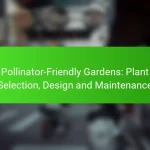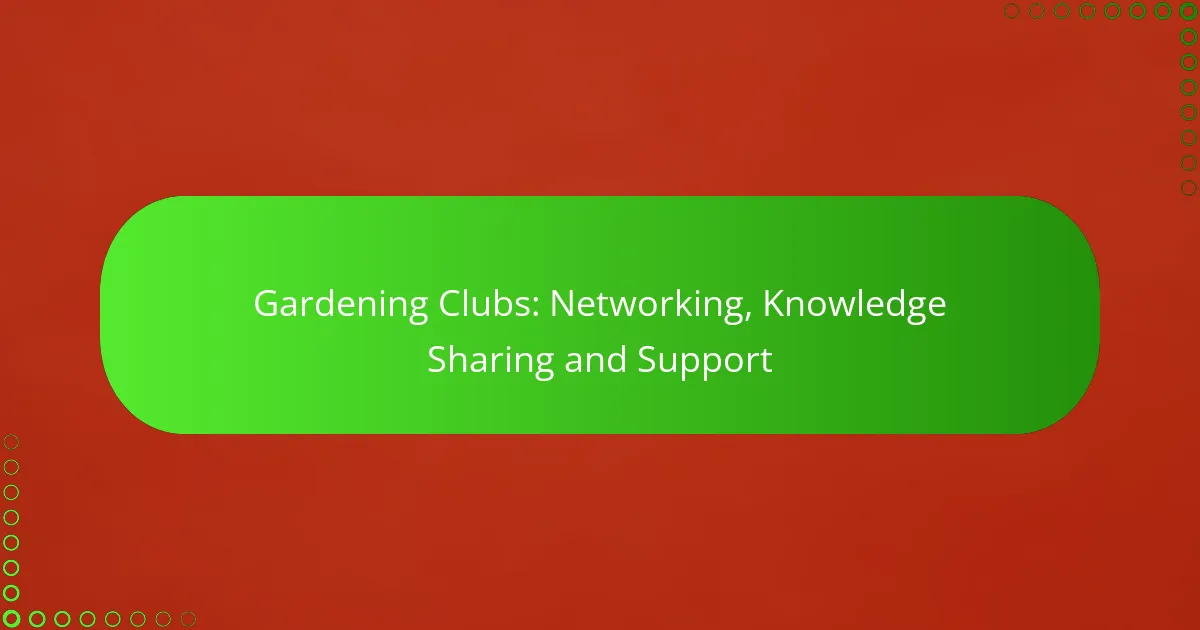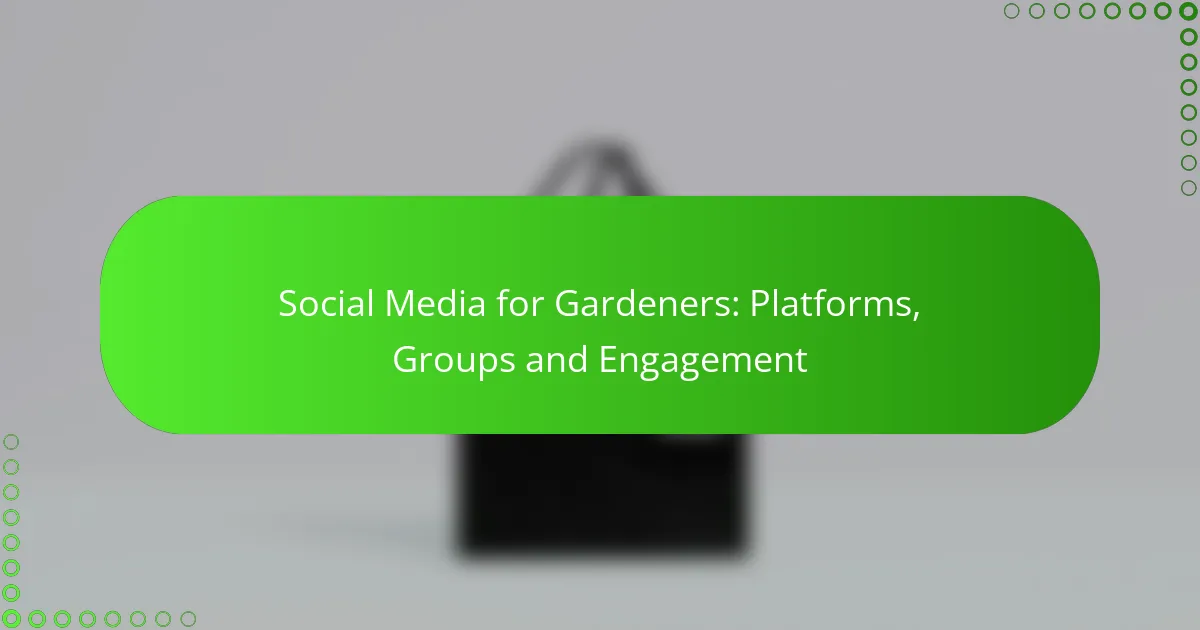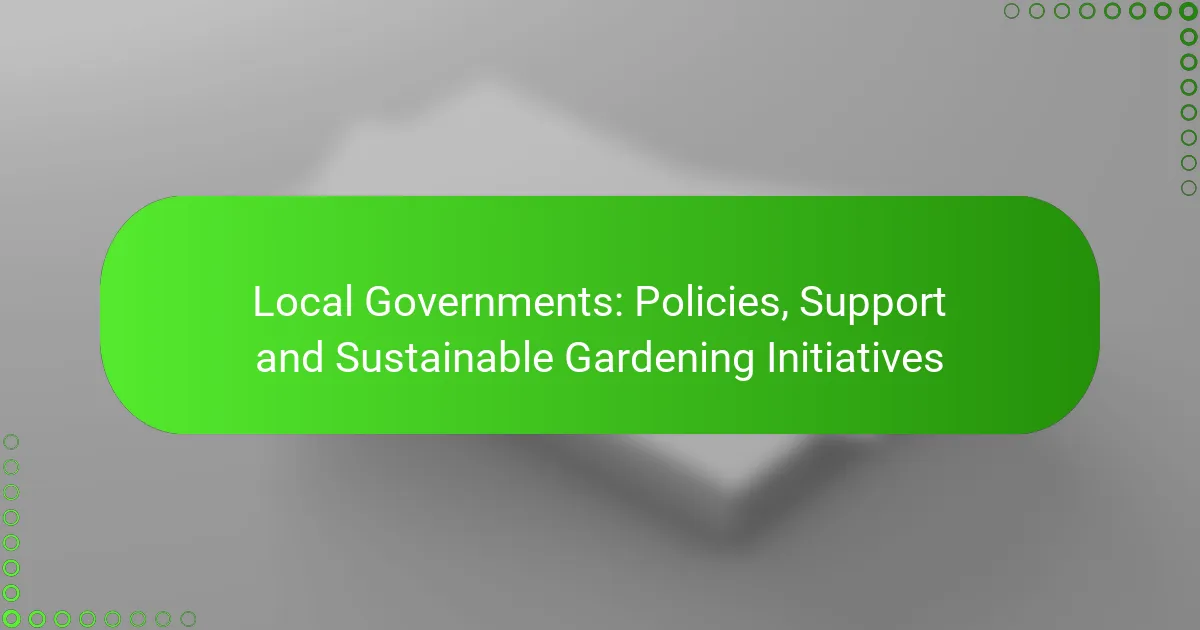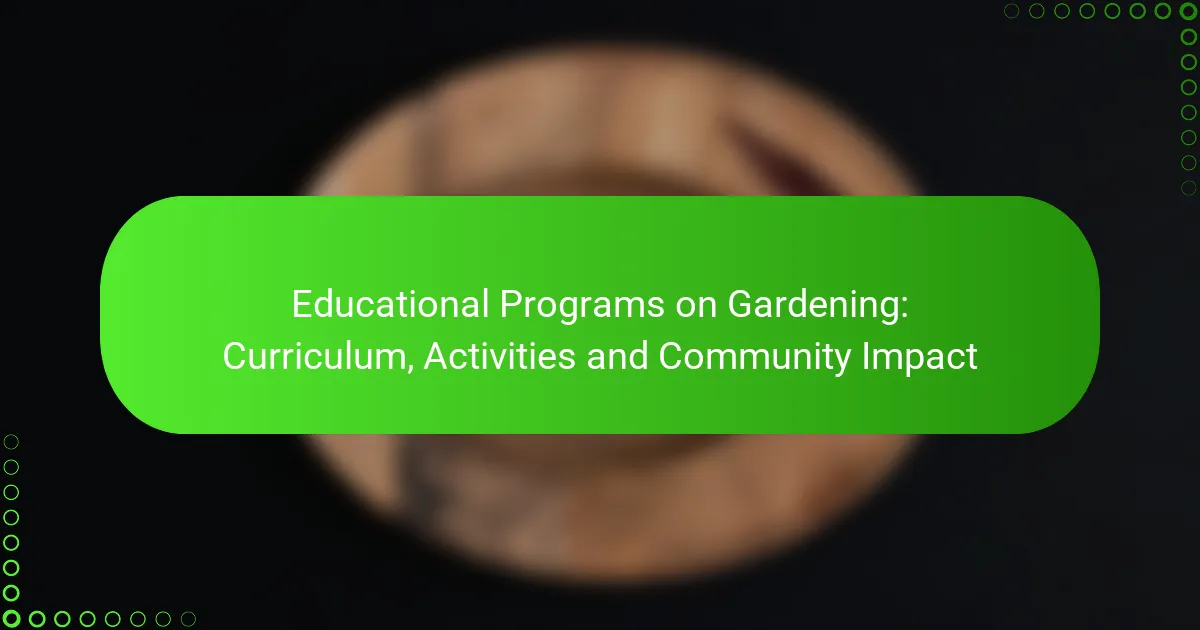Gardening clubs in South Africa provide a vibrant platform for enthusiasts to connect, share knowledge, and access valuable resources. These clubs not only enhance members’ gardening skills but also cultivate a strong sense of community among like-minded individuals. By participating in various types of clubs, from community-focused groups to specialized forums, members can find tailored support and networking opportunities that align with their gardening passions.
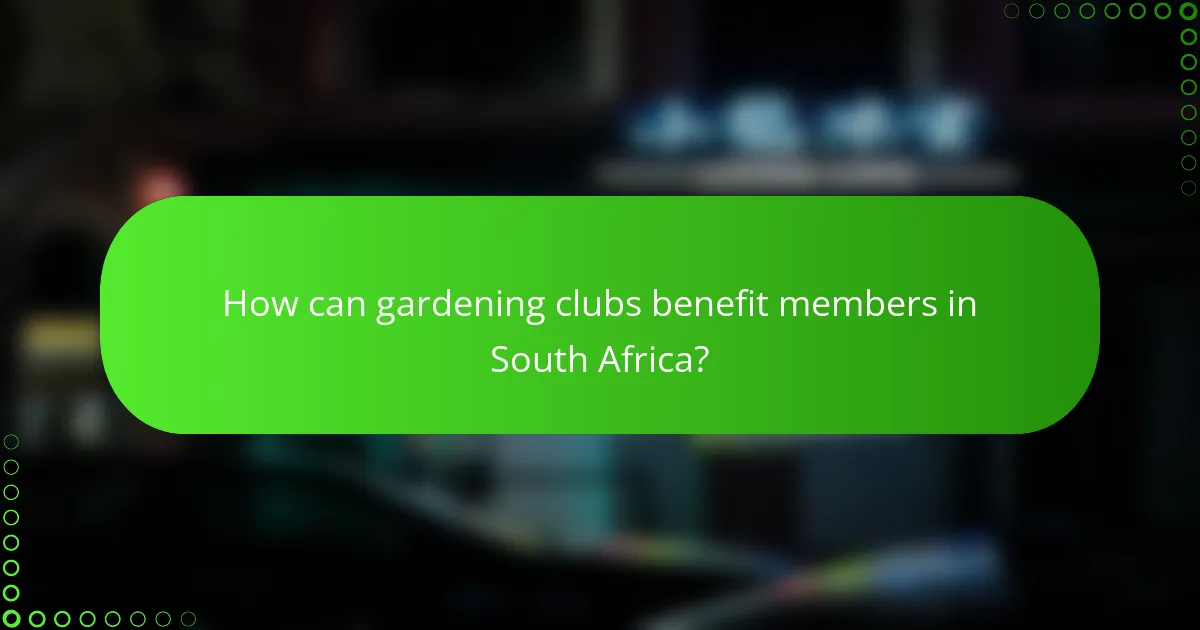
How can gardening clubs benefit members in South Africa?
Gardening clubs in South Africa offer members a range of benefits, including enhanced networking, shared knowledge, and access to valuable resources. These clubs foster a sense of community among gardening enthusiasts, helping them grow both their skills and their social connections.
Networking opportunities
Joining a gardening club provides members with numerous networking opportunities. Members can connect with fellow gardeners, local experts, and suppliers, which can lead to collaborations and friendships. Events such as plant swaps and garden tours further enhance these connections.
Networking within a gardening club can also open doors to local gardening events, workshops, and competitions, allowing members to showcase their skills and learn from others. This community aspect is particularly valuable in South Africa, where local knowledge about climate and soil conditions can significantly impact gardening success.
Knowledge sharing
Gardening clubs are excellent platforms for knowledge sharing among members. Experienced gardeners can offer tips on plant care, pest management, and seasonal planting specific to South Africa’s diverse climates. This exchange of information helps both novice and seasoned gardeners improve their practices.
Clubs often organize workshops and guest speaker events, where members can learn about new gardening techniques, sustainable practices, and innovative tools. This collective wisdom can help members make informed decisions about their gardening projects, ultimately leading to better results.
Support and resources
Support within gardening clubs is invaluable, as members can seek advice and assistance with their gardening challenges. Whether dealing with pests, diseases, or plant selection, having a supportive community can make a significant difference in overcoming obstacles.
Additionally, gardening clubs may provide access to resources such as shared tools, seeds, and gardening literature. Some clubs even have partnerships with local nurseries or gardening centers, offering discounts on supplies. This support network can help members save money and enhance their gardening experience.
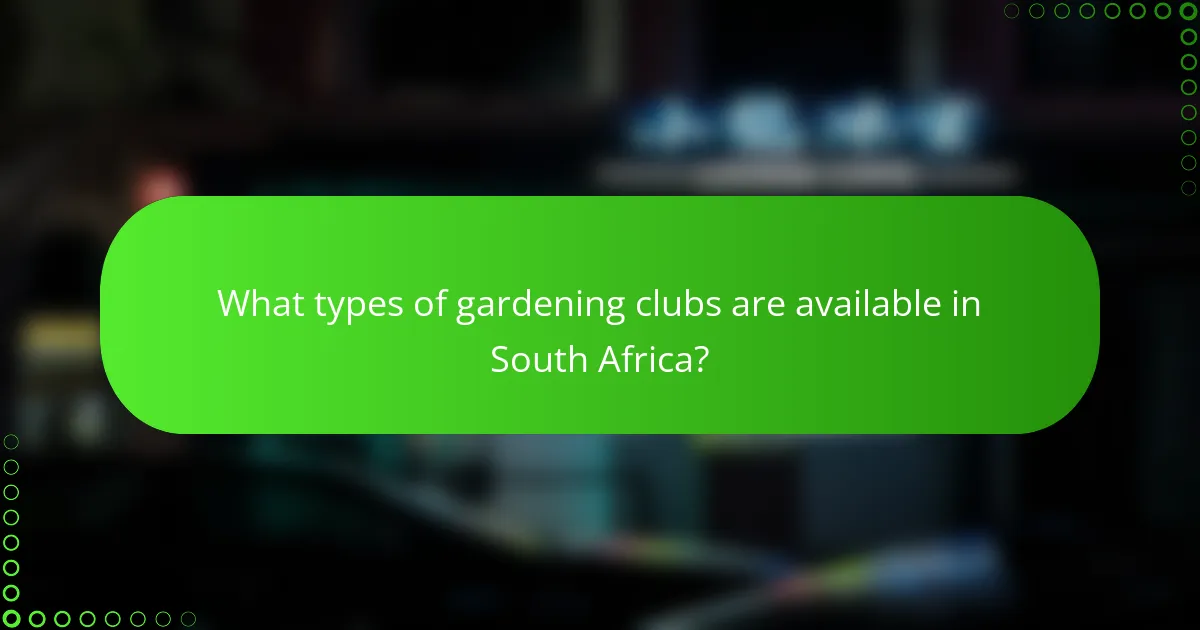
What types of gardening clubs are available in South Africa?
In South Africa, gardening clubs can be broadly categorized into community gardening clubs, specialized gardening clubs, and online gardening forums. Each type offers unique opportunities for networking, knowledge sharing, and support among gardening enthusiasts.
Community gardening clubs
Community gardening clubs focus on collective gardening efforts in shared spaces, often within neighborhoods or local parks. Members collaborate on projects, share resources, and learn from one another, fostering a sense of community and environmental stewardship.
These clubs typically organize events such as planting days, workshops, and garden tours. Participating in a community gardening club can enhance your gardening skills while building friendships with fellow gardeners.
Specialized gardening clubs
Specialized gardening clubs cater to specific interests, such as organic gardening, succulent cultivation, or native plant gardening. These clubs provide targeted knowledge and resources, making them ideal for those looking to deepen their expertise in a particular area.
Members often benefit from expert-led workshops, seed exchanges, and access to specialized literature. Joining a specialized club can help you connect with like-minded individuals and gain insights tailored to your gardening passion.
Online gardening forums
Online gardening forums offer a virtual space for gardeners to share advice, experiences, and resources. These platforms allow members to ask questions, post photos, and engage in discussions regardless of their geographical location.
Popular forums often include sections for specific plant types, gardening techniques, and troubleshooting. Engaging in online forums can be a convenient way to expand your gardening knowledge and connect with a broader community of enthusiasts.

How to choose the right gardening club in South Africa?
Choosing the right gardening club in South Africa involves considering the club’s focus, activities, and member engagement. Look for clubs that align with your gardening interests and offer opportunities for networking and knowledge sharing.
Assess club activities
Evaluate the activities offered by the gardening club to ensure they match your interests. Clubs may host workshops, plant swaps, garden tours, or community service projects. A diverse range of activities can enhance your experience and provide valuable learning opportunities.
Consider whether the club focuses on specific gardening styles, such as organic gardening, permaculture, or ornamental gardening. This focus can help you connect with like-minded individuals and deepen your knowledge in areas that interest you.
Evaluate member engagement
Active member engagement is crucial for a vibrant gardening club. Look for clubs where members regularly participate in discussions, events, and volunteer opportunities. High engagement levels often indicate a supportive community that fosters knowledge sharing.
Check if the club has an online presence, such as a website or social media group, where members can interact and share tips. This can enhance your experience and keep you informed about upcoming events and activities.
Consider location and accessibility
Location plays a significant role in your ability to participate in a gardening club. Choose a club that is conveniently located near your home or workplace to make attending meetings and events easier. Accessibility is also important; ensure the venue is suitable for all members, including those with mobility challenges.
Additionally, consider the club’s meeting frequency and schedule. Clubs that meet regularly and at convenient times can help you stay engaged and connected with fellow gardening enthusiasts.
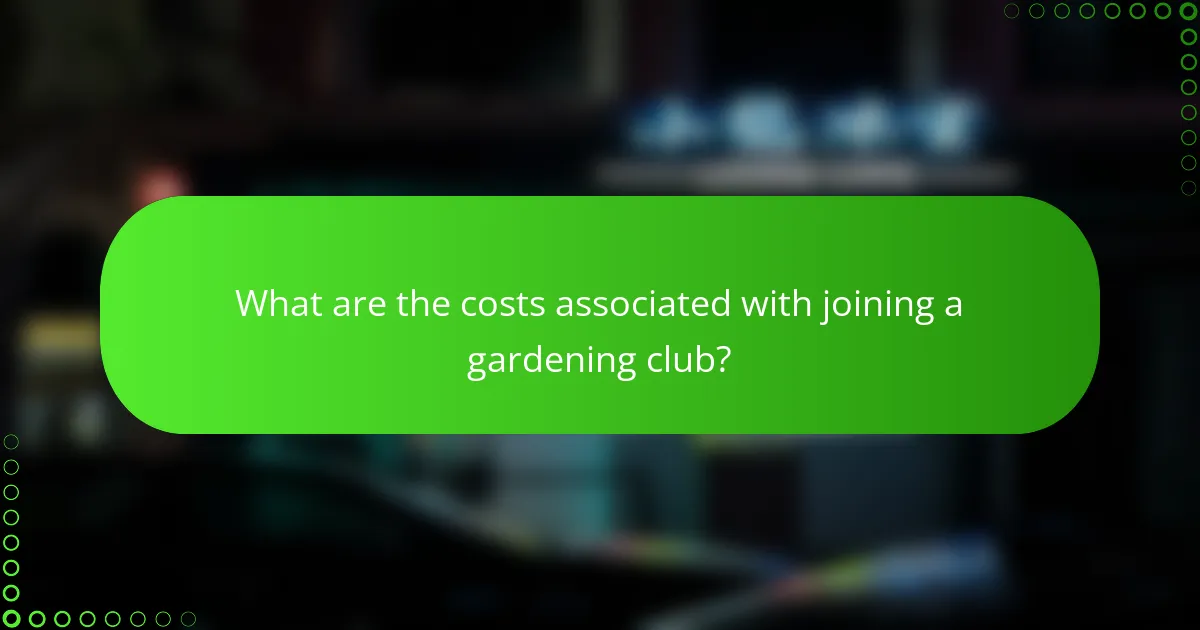
What are the costs associated with joining a gardening club?
Joining a gardening club typically involves several costs, which can vary based on the club’s structure and activities. Members should consider membership fees, event participation costs, and expenses for supplies and materials when budgeting for their involvement.
Membership fees
Membership fees are the primary cost associated with joining a gardening club. These fees can range from around $20 to $100 annually, depending on the club’s location and offerings. Some clubs may offer family memberships or discounts for seniors and students.
It’s essential to review what the membership fee includes, such as access to exclusive events, newsletters, or discounts on supplies. Some clubs may have tiered membership levels with varying benefits, so choose one that aligns with your gardening interests.
Event participation costs
Many gardening clubs host events, workshops, and field trips that may require additional fees. Participation costs can vary widely, from free events to those charging $10 to $50 per person for specialized workshops or outings. Check the club’s calendar for upcoming events and their associated costs.
Some clubs may offer members reduced rates for events, so it’s beneficial to be an active member. Additionally, consider the value of networking and learning opportunities these events provide, which can enhance your gardening skills.
Supplies and materials
Joining a gardening club may also lead to additional costs for supplies and materials needed for projects or activities. Members might need to purchase seeds, soil, tools, or plants, which can range from a few dollars to several hundred, depending on the scale of the gardening projects.
To manage these costs, consider collaborating with other members for bulk purchases or sharing tools and resources. Many clubs also organize plant swaps or supply exchanges, which can help reduce individual expenses while fostering community support.
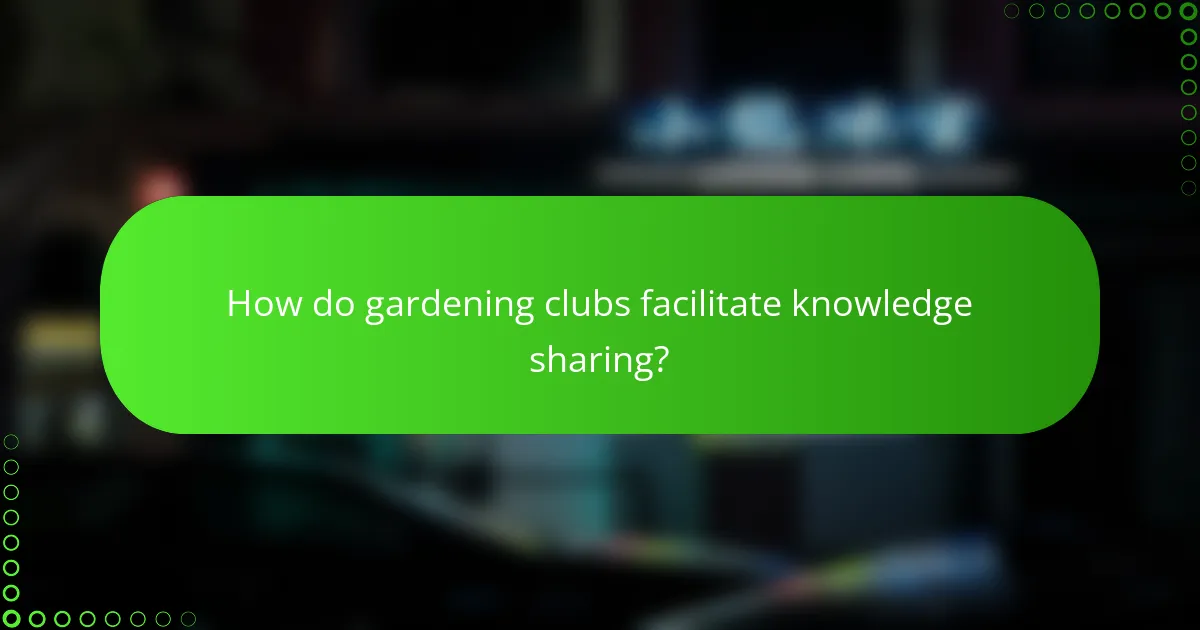
How do gardening clubs facilitate knowledge sharing?
Gardening clubs promote knowledge sharing by creating a community where members exchange tips, techniques, and experiences related to gardening. This collaborative environment enhances learning and fosters a deeper understanding of horticultural practices.
Workshops and seminars
Gardening clubs often organize workshops and seminars that cover a wide range of topics, from basic gardening skills to advanced techniques. These events provide hands-on learning opportunities, allowing members to practice new skills in a supportive setting.
Participants can expect to engage in activities such as planting, pruning, and pest management, often led by experienced members or local horticulturists. Workshops may vary in duration, typically lasting a few hours to a full day, depending on the subject matter.
Guest speakers and experts
Inviting guest speakers and experts is a common practice in gardening clubs, offering members insights from seasoned professionals. These speakers may include botanists, landscape designers, or local farmers who share their expertise on specific topics.
Members benefit from the opportunity to ask questions and gain practical advice tailored to their local environment. This interaction can lead to valuable networking opportunities and foster connections within the gardening community.
Online resources and newsletters
Many gardening clubs provide online resources and newsletters that keep members informed about the latest gardening trends, techniques, and events. These digital platforms often include articles, videos, and forums for discussion, making knowledge sharing accessible to all members.
Regular newsletters can feature tips for seasonal gardening, upcoming events, and highlights from recent workshops. Utilizing these resources helps members stay engaged and continuously learn, even outside of club meetings.
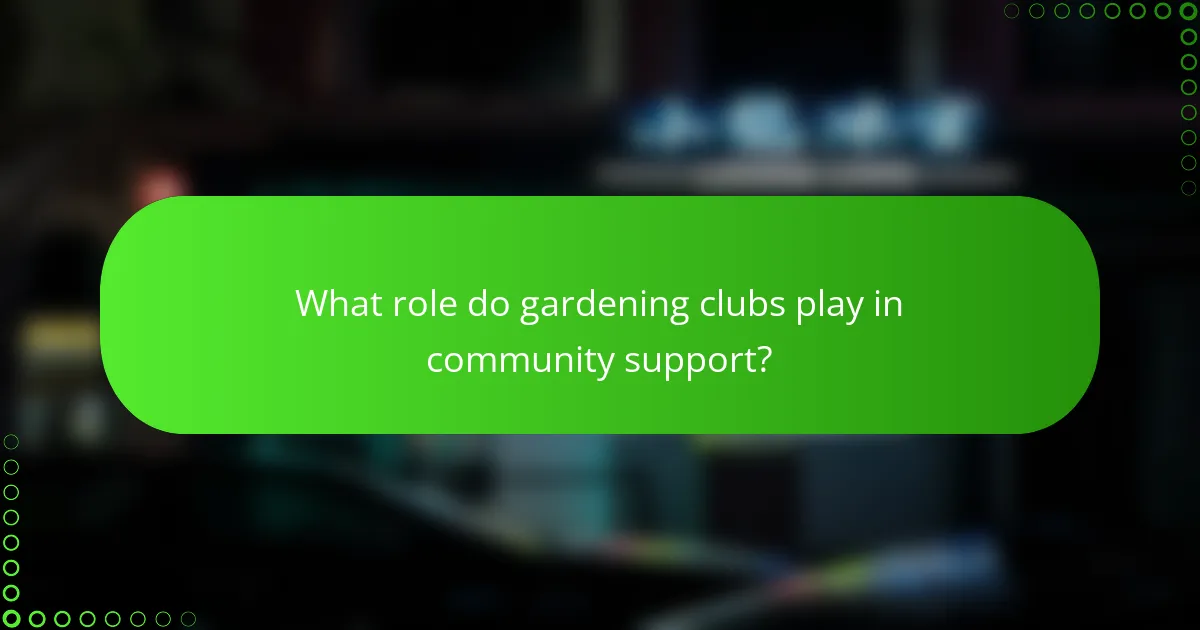
What role do gardening clubs play in community support?
Gardening clubs serve as vital hubs for community support by fostering connections among members and promoting collaborative projects. They enhance local environments while providing educational resources and networking opportunities for gardening enthusiasts.
Community beautification projects
Gardening clubs often spearhead community beautification projects that transform public spaces into vibrant areas. These initiatives can include planting flowers in parks, creating community gardens, or maintaining green spaces. Such projects not only improve aesthetics but also encourage community pride and involvement.
To get started, clubs can organize volunteer days where members and local residents come together to plant and maintain gardens. It’s beneficial to collaborate with local governments for permissions and support, ensuring that projects align with community needs.
Educational outreach programs
Educational outreach programs are a cornerstone of gardening clubs, providing valuable knowledge to both members and the wider community. These programs can include workshops, seminars, and hands-on training sessions focused on various gardening techniques, sustainable practices, and pest management.
Clubs may partner with schools or local libraries to host events, making gardening accessible to all ages. Offering resources like pamphlets or online tutorials can further enhance learning and engagement within the community.
Collaboration with local organizations
Collaboration with local organizations amplifies the impact of gardening clubs in community support. By partnering with nonprofits, schools, and environmental groups, clubs can expand their reach and resources, creating more comprehensive programs.
For example, a gardening club might work with a local food bank to establish a community garden that provides fresh produce to those in need. Establishing clear communication and shared goals with partner organizations is crucial for successful collaborations.





